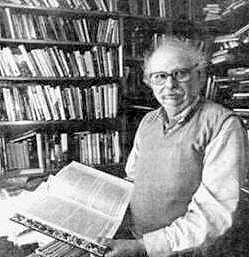
Israel Shahak was an Israeli professor of organic chemistry at the Hebrew University of Jerusalem, a Holocaust survivor, an intellectual of liberal political bent, and a civil-rights advocate and activist on behalf of both Jews and Gentiles (non-Jews). For twenty years, he headed the Israeli League for Human and Civil Rights (1970–90) and was a public critic of the policies of the governments of Israel. As a public intellectual, Shahak's works about Judaism proved controversial, especially the book Jewish History, Jewish Religion: The Weight of Three Thousand Years (1994).

Amos Elon was an Israeli journalist and author.
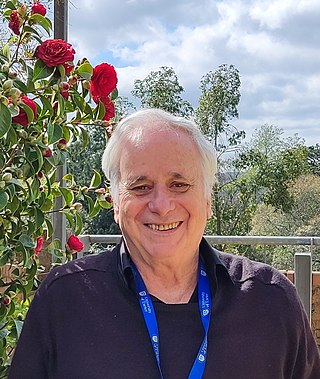
Ilan Pappé is an Israeli historian, political scientist and former politician. He is a professor with the College of Social Sciences and International Studies at the University of Exeter in the United Kingdom, director of the university's European Centre for Palestine Studies, and co-director of the Exeter Centre for Ethno-Political Studies.

Hamid Dabashi is an Iranian-American professor of Iranian Studies and Comparative Literature at Columbia University in New York City.
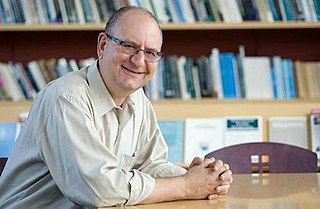
Beshara Doumani is a Palestinian-American academic currently serving as the president of Birzeit University. Prior to that, he was the Mahmoud Darwish Professor of Palestinian Studies at Brown University. His research focuses on groups, places, and time periods marginalized by mainstream scholarship on the early modern and modern Middle East. He is also a public intellectual who writes on the topics of displacement, academic freedom, politics of knowledge production, and the Palestinian condition.

Rashid Ismail Khalidi is a Palestinian-American historian of the Middle East and the Edward Said Professor of Modern Arab Studies at Columbia University. He served as editor of the Journal of Palestine Studies from 2002 until 2020, when he became co-editor with Sherene Seikaly.
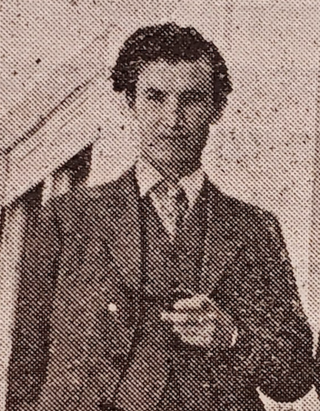
Walid Khalidi is a Palestinian historian who has written extensively on the Palestinian exodus. He is a co-founder of the Institute for Palestine Studies, established in Beirut in December 1963 as an independent research and publishing center focusing on the Palestine problem and the Arab–Israeli conflict, and was its general secretary until 2016.
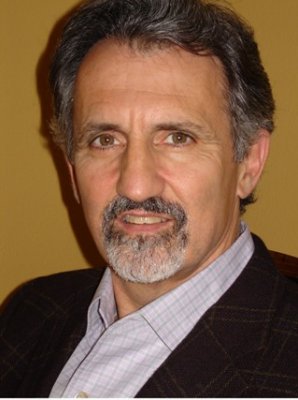
George Bisharat is an American professor of law and frequent commentator on current events in the Middle East, and the Israeli–Palestinian conflict in particular.

Edward Wadie Said was a Palestinian-American academic, literary critic and political activist. As a professor of literature at Columbia University, he was among the founders of post-colonial studies. As a cultural critic, Said is best known for his book Orientalism (1978), a foundational text which critiques the cultural representations that are the bases of Orientalism—how the Western world perceives the Orient. His model of textual analysis transformed the academic discourse of researchers in literary theory, literary criticism, and Middle Eastern studies.
Nur ad-Din Masalha commonly known in English as Nur Masalha is a Palestinian writer, historian, and academic.
The Palestine Center is an independent educational program based in Foggy Bottom, Washington, D.C. Their focus is on the Israeli–Palestinian conflict and other Middle East issues.
Hisham Sharabi was Professor Emeritus of History and Umar al-Mukhtar Chair of Arab Culture at Georgetown University, where he was a specialist in European intellectual history and social thought. He died of cancer at the American University of Beirut hospital on January 13, 2005.
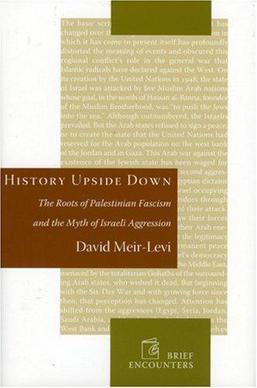
History Upside Down: The Roots of Palestinian Fascism and the Myth of Israeli Aggression, is a book by David Meir-Levi, professor of archaeology, Near Eastern history, and Middle Eastern history at San Jose State University about the Israel-Palestine conflict. Meir-Levi argues that Israel and Zionism have become the targets of antisemitic historical negationism by Arabic and Muslim bigots.

Boycott, Divestment and Sanctions (BDS) is a nonviolent Palestinian-led movement promoting boycotts, divestments, and economic sanctions against Israel. Its objective is to pressure Israel to meet what the BDS movement describes as Israel's obligations under international law, defined as withdrawal from the occupied territories, removal of the separation barrier in the West Bank, full equality for Arab-Palestinian citizens of Israel, and "respecting, protecting, and promoting the rights of Palestinian refugees to return to their homes and properties". The movement is organized and coordinated by the Palestinian BDS National Committee.
The Palestinian Campaign for the Academic and Cultural Boycott of Israel (PACBI) was launched in April 2004 by a group of Palestinian academics and intellectuals in Ramallah, in the West Bank. PACBI is part of the Boycott, Divestment and Sanctions (BDS) campaign. The campaign calls for BDS activities against Israel to put international pressure on Israel, in this case against Israeli academic institutions, all of which are said by PACBI to be implicated in the perpetuation of Israeli occupation, in order to achieve BDS goals. The goal of the proposed academic boycotts is to isolate Israel in order to force a change in Israel's policies towards the Palestinians, which proponents argue are discriminatory and oppressive, including oppressing the academic freedom of Palestinians.

Mona Baker is a professor of translation studies and Director of the Centre for Translation and Intercultural Studies at the University of Manchester in England.

Noura Saleh Erakat is an American activist, university professor, legal scholar, and human rights attorney. She is currently an associate professor at Rutgers University, specializing in international studies. Her primary focus being the Israeli–Palestinian conflict, she is a vocal critic of the State of Israel.
The current campaign for an academic boycott of Israel was launched in April 2004 by the Palestinian Campaign for the Academic and Cultural Boycott of Israel (PACBI) as part of the Boycott, Divestment and Sanctions (BDS) campaign. The campaign calls for BDS activities against Israel to put international pressure on Israel, in this case against Israeli academic institutions, all of which are said by PACBI to be implicated in the perpetuation of Israeli occupation, in order to achieve BDS goals. Since then, proposals for academic boycotts of particular Israeli universities and academics have been made by academics and organisations in Palestine, the United States, the United Kingdom, and other countries. The goal of the proposed academic boycotts is to isolate Israel in order to force a change in Israel's policies towards the Palestinians, which proponents argue are discriminatory and oppressive, including oppressing the academic freedom of Palestinians.
Hanna Musleh is a Palestinian film maker and university professor.

Bruce Robbins is an American literary scholar, author and an academic. He is the Old Dominion Foundation Professor in the Humanities in the Department of English and Comparative Literature at Columbia University.














